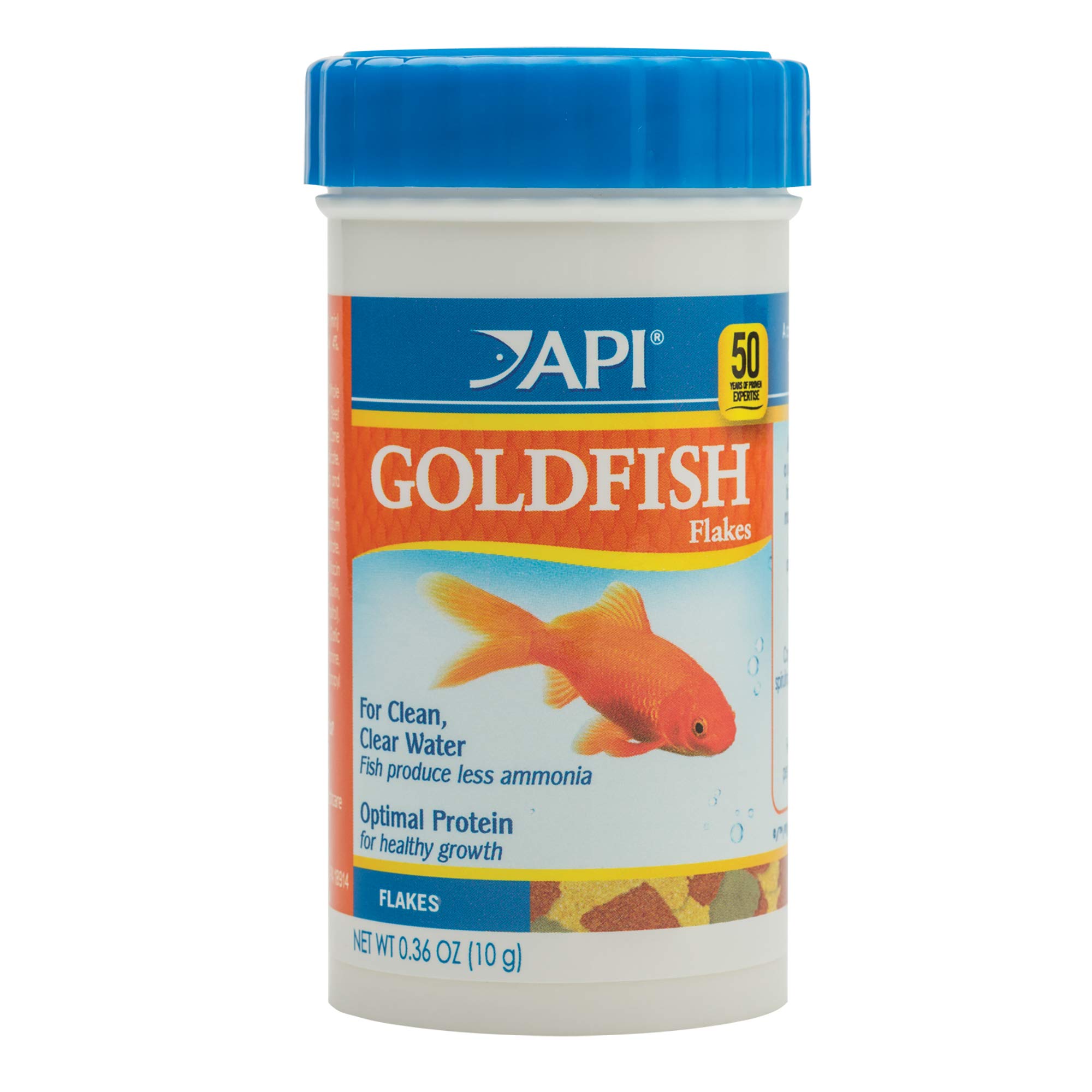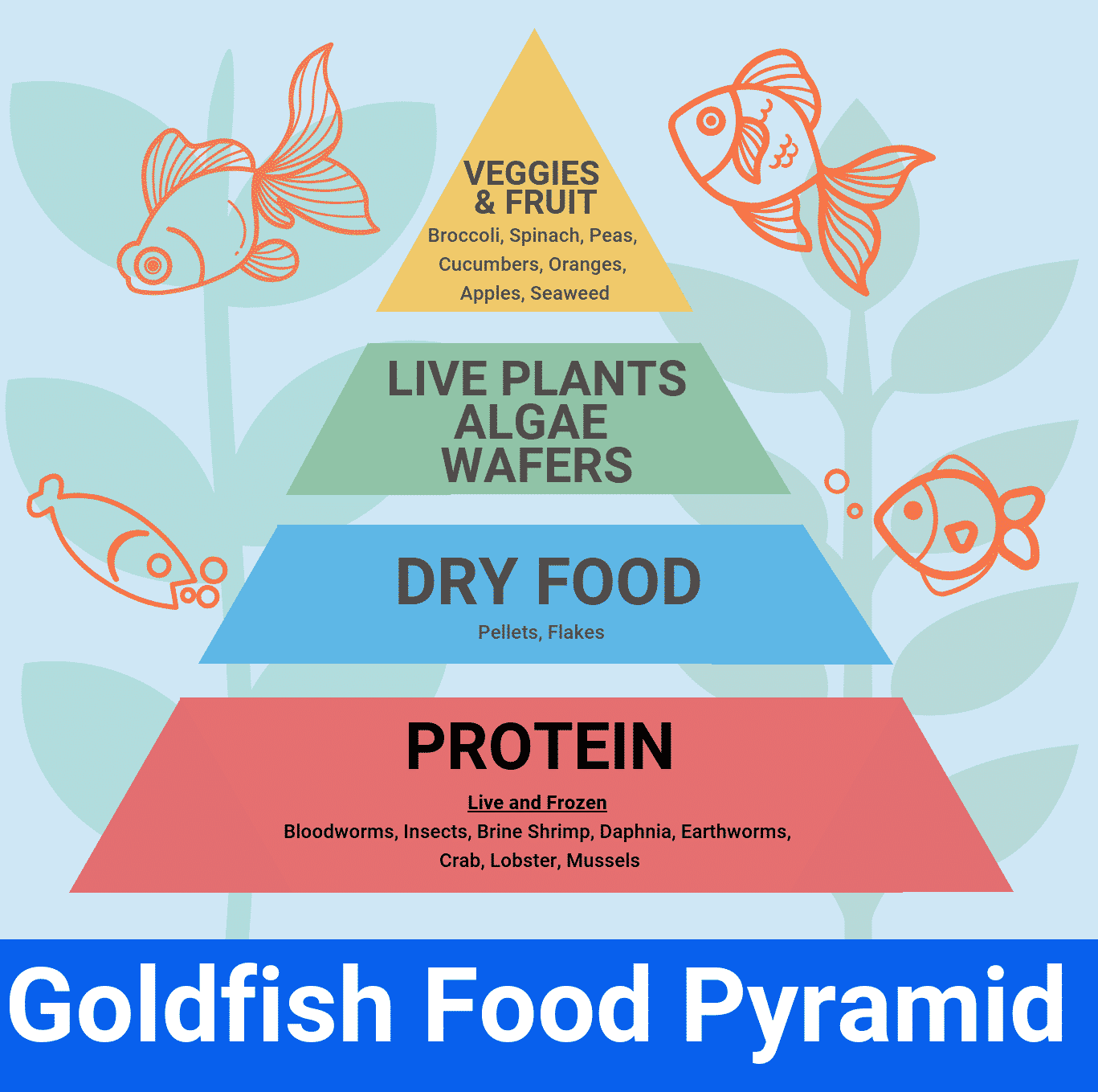
Goldfish are one of the most popular aquarium fish, known for their vibrant colors, playful personalities, and relatively low-maintenance care requirements. While these hardy creatures are often depicted nibbling on fish flakes, their dietary needs extend far beyond this basic food source. A varied and balanced diet is essential for goldfish to thrive, promoting overall health, preventing diseases, and extending their lifespan. This comprehensive guide delves into the world of goldfish nutrition, exploring the diverse range of food options that can complement commercial fish food and ensure your finned friends receive the nourishment they need.
Venturing Beyond Fish Food: A World of Culinary Delights for Goldfish
Commercial fish flakes, while convenient, often lack the nutritional diversity that goldfish require for optimal health. Fortunately, the culinary landscape for these aquatic pets is vast and exciting, offering a plethora of options to tantalize their taste buds and provide essential nutrients. Let’s embark on a journey to discover the delectable treats that await your goldfish beyond the realm of fish flakes.
Live and Frozen Delicacies: A Symphony of Nutrition and Flavor
Live and frozen foods offer a wealth of benefits for goldfish, providing them with a natural source of enzymes, vitamins, and minerals that are crucial for their well-being. These options closely mimic the prey that goldfish would encounter in their natural environment, stimulating their instincts and enhancing their overall health. Let’s explore some of the most popular live and frozen food choices for goldfish:
-
Brine shrimp: These tiny crustaceans are packed with protein and essential fatty acids, making them an excellent choice for goldfish of all ages. Brine shrimp can be fed live or frozen, and they are readily consumed by goldfish.
-
Bloodworms: These wiggly worms are another excellent source of protein and nutrients for goldfish. They are particularly beneficial for young goldfish, as they support growth and development. Bloodworms can be fed live or frozen, and they are typically well-received by goldfish.
-
Daphnia: These small freshwater fleas are a rich source of protein, omega-3 fatty acids, and carotenoids, which enhance goldfish coloration. Daphnia can be fed live or frozen, and they are generally enjoyed by goldfish.
-
Mosquito larvae: These wriggling larvae are a natural prey item for goldfish and provide a good source of protein and amino acids. Mosquito larvae can be fed live or frozen, and they are often eagerly consumed by goldfish.
Vegetables: A Garden of Goodness for Goldfish
While often overlooked, vegetables can play a significant role in a goldfish’s diet. They provide essential vitamins, minerals, and fiber that support overall health and digestion. Incorporating vegetables into your goldfish’s diet can enhance their vitality and add variety to their meals. Here are some safe and nutritious vegetable options for goldfish:
-
Cooked peas: These soft, digestible peas are a good source of protein, fiber, and vitamins A and C. Cooked peas should be mashed or deshelled before feeding to goldfish.
-
Zucchini: This versatile vegetable is a rich source of vitamins A and C, as well as potassium and fiber. Zucchini can be sliced thinly or boiled until soft before feeding to goldfish.
-
Spinach: This leafy green is packed with vitamins A, C, and K, as well as iron and calcium. Spinach should be wilted or cooked before feeding to goldfish.
-
Lettuce: This low-calorie vegetable is a good source of fiber and vitamins A and C. Lettuce should be torn into small pieces before feeding to goldfish.
-
Broccoli: This nutrient-rich vegetable is a good source of vitamins A, C, and K, as well as fiber and potassium. Broccoli should be steamed or cooked until soft before feeding to goldfish.

Fruits: A Sweet Treat for Goldfish
Occasional fruit treats can add variety and enrichment to a goldfish’s diet. Fruits provide natural sugars, vitamins, and minerals that can support their overall health. However, it is crucial to offer fruits sparingly, as excessive consumption can lead to digestive issues. Here are some safe and enjoyable fruit options for goldfish:
-
Apples: These crunchy fruits are a good source of vitamins A and C, as well as fiber. Apples should be peeled, cored, and cut into small pieces before feeding to goldfish.
-
Bananas: These potassium-rich fruits are a good source of energy and can aid in digestion. Bananas should be peeled and sliced thinly before feeding to goldfish.
-
Pears: These sweet fruits are a good source of vitamins A and C, as well as fiber. Pears should be peeled, cored, and cut into small pieces before feeding to goldfish.
-
Strawberries: These juicy fruits are a good source of vitamins A and C, as well as potassium. Strawberries should be hulled and cut into small pieces before feeding to goldfish.

-
Additional Food Options for Goldfish
-
Live plants: While not technically food, live plants offer a multitude of benefits for goldfish. They can graze on algae growing on the plants, providing a natural source of roughage and nutrients. Additionally, live plants help to improve water quality by absorbing excess nutrients and providing oxygen.
-
Algae wafers: These algae-based tablets are a good source of fiber, vitamins, and minerals for goldfish, particularly bottom feeders. Algae wafers sink to the bottom of the tank, allowing goldfish to graze on them at their leisure.
-
Occasional treats: While a balanced diet is essential, the occasional treat can be a delightful enrichment for goldfish. Consider offering a small piece of bloodworm, daphnia, or brine shrimp as a special reward. Remember, moderation is key, and treats should only be offered sparingly to avoid digestive problems.

Dietary Considerations for a Thriving Goldfish
Providing your goldfish with a variety of nutritious foods is crucial, but there are other dietary considerations to keep in mind for optimal health:
-
Variety in diet: Just like humans, goldfish thrive on a varied diet. Rotating between different food options ensures they receive a complete spectrum of nutrients and prevents boredom.
-
Portion control: Overfeeding is a common mistake among goldfish owners. Uneaten food can decompose and pollute the water, leading to health problems. As a general rule, feed your goldfish only what they can consume within two minutes.
-
Avoiding overfeeding: Goldfish have small stomachs and can easily become overfed. Signs of overfeeding include lethargy, floating, and bulging bellies. If you notice these signs, reduce the amount of food you are offering and monitor your goldfish closely.
-
Monitoring water quality: Uneaten food and fish waste can deteriorate water quality. Regular water changes and filtration are essential to maintain a clean and healthy environment for your goldfish.
-

